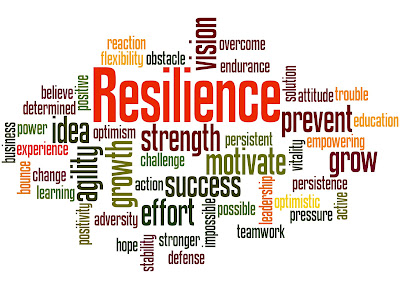 |
| Overcoming Low Esteem: Watch Out For Negative Self Talk |
Why do people with low self esteem engage in negative self talk?
There are so many reasons. Often, they have internalized what was told to them when they were growing up ("You'll never amount to anything" or "You're just as useless as your father" or "You're so stupid" or "Children should be seen and not heard").
After a while, no one has to say these things any more because people who have developed low self esteem begin to say it to themselves and, worse still, they believe it.
What to do to stop the negative self talk:
The first thing to do is to become aware that you're doing it.
That can be a challenge because it's so automatic. The other thing is that if you really believe these negative things about yourself, you can convince yourself that it's not negative self talk--it's the way it really is ("It's not a negative thought--I really am useless").
 |
| Overcoming Low Self Esteem: Watch Out For Negative Self Talk |
Learn to Observe Your Thoughts to Identify Distorted Thinking
Learn to observe your own thoughts and identify distorted thinking.
If you have difficulty doing this, ask a supportive friend to help you by pointing out (gently and tactfully) when they hear you engaging in self criticism. Someone else might see it more easily than you do at first.
The next thing you can do is to make an effort to change these negative thought patterns by stepping back, challenging yourself and developing some perspective.
Ask Yourself:
Do I really believe this about myself?
Is there even a small part of me that has a more positive view sometimes?
What might a more objective person say about it? If an objective person has a more positive view, can I practice trying to look at it from this person's view?
Could there be some other reason why things might not have worked out for me in a particular area (rather than thinking of yourself as lazy or stupid)?
What would I say to a close friend or loved one if they told me that they usually have negative thoughts about themselves? (Chances are, you would be kinder to your friend than you are to yourself.)
Getting Help in Therapy
If low self esteem is still getting you down, you might want to seek professional help. In particular, clinical hypnosis and psychotherapy can be very effective to overcome low self esteem.
 |
| You Can Overcome Low Esteem |
About Me
I am a licensed New York City psychotherapist, hypnotherapist, EMDR, AEDP, EFT, Somatic Experiencing and Sex Therapist.
I work with individual adults and couples.
To find out more about me, please see my website: Josephine Ferraro, LCSW - NYC Psychotherapist.
To set up a consultation, call me at (917) 742-2624 during business hours or email me.
To set up a consultation, call me at (917) 742-2624 during business hours or email me.














.jpg)












